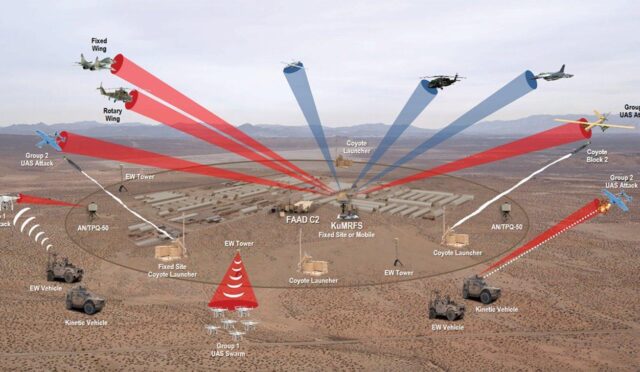Gaza Ceasefire Negotiations Renewed
Indirect negotiations aimed at establishing a ceasefire between Israel and Hamas are set to resume in Doha on Sunday. This comes just ahead of a crucial meeting between Israeli Prime Minister Benjamin Netanyahu and US President Donald Trump. Netanyahu has previously dispatched a team to Qatar, reaffirming its role as a vital mediator in the ongoing conflict between the two sides. However, he was quick to note that Hamas’s response to a draft ceasefire agreement, backed by the US, contained demands he deemed “unacceptable.” As pressures mount to conclude the hostilities, which are approaching their 22nd month, Netanyahu’s upcoming talks with Trump could potentially influence the peace process.
A Palestinian official familiar with the discussions, who is closely associated with Hamas, stated that international mediators have informed them that a new round of indirect negotiations is indeed underway in Doha. The focus of these talks will be centered around terms for a possible ceasefire, including critical issues such as the release of hostages and prisoners. Moreover, Hamas is advocating for the reopening of the Rafah crossing in Gaza to facilitate the evacuation of the wounded. Khalil al-Hayya, Hamas’s chief negotiator, is leading the delegation in Qatar, while Israel’s representatives have also arrived in the Qatari capital.
Protests in Tel Aviv
In Tel Aviv, protests erupted on Saturday, as participants gathered for their weekly demonstration demanding the release of hostages taken by Hamas during the group’s attack on October 7, 2023. This attack sparked the ongoing conflict, and relatives of the captives, such as Macabit Mayer, whose family members include Gali and Ziv Berman, voiced their heartbreak and called for negotiations that could bring about a resolution benefiting everyone involved.
According to multiple Palestinian sources involved in the negotiations, there is a proposal on the table that outlines a potential 60-day truce. Under this proposal, Hamas would release ten living hostages and several deceased individuals in exchange for Palestinian detainees held by Israel. However, Hamas is emphasizing specific conditions, including a strategic Israeli withdrawal and assurances against resuming combat during the negotiations.
Ongoing Violence in Gaza
Despite ongoing negotiations, violence continues to plague the region. Gaza’s civil defense agency reported on Sunday that 14 individuals lost their lives due to airstrikes carried out by Israeli forces. Notably, ten of those fatalities occurred during a pre-dawn strike in Gaza City’s Sheikh Radawn neighborhood. Eyewitness accounts captured the heartbreaking scene of Palestinians sifting through rubble in search of survivors. Given the restricted media access in Gaza, independent verification of these casualty reports remains unattainable.
Moreover, Osama al-Hanawi, a local resident, expressed anguish over the ongoing situation, revealing that some of his family members are still trapped under the debris. His poignant words highlighted the desperation facing many: “We are losing young people, families, and children every day, and this must stop now. Enough blood has been shed.”
Hostage Crisis and Humanitarian Concerns
The hostage crisis remains a central issue in ongoing negotiations, particularly as Israel works to dismantle Hamas, following the group’s October assault that led to the conflict’s escalation. Mediators have previously established temporary ceasefires, allowing for limited exchanges of hostages for Palestinian prisoners. Of the 251 individuals abducted by Hamas during the initial attack, 49 remain in captivity in Gaza, with the Israeli military asserting that a significant number are believed to be deceased.
The humanitarian crisis in Gaza continues to intensify, with over two million residents facing dire conditions. Locals, like Karima al-Ras from Khan Yunis, have expressed critical needs, yearning for a ceasefire to enable aid delivery. “People are dying for flour,” she shared, emphasizing the desperate circumstances. Following a partial lifting of the blockade, a US- and Israel-backed organization, the Gaza Humanitarian Foundation, has taken charge of food distribution, although notable aid groups refuse to collaborate with it amid fears of it serving Israeli military objectives.
Casualty Figures and International Response
According to an AFP count, the October 2023 Hamas raid resulted in 1,219 deaths, primarily among civilians, while Israel’s retaliatory actions have claimed at least 57,418 lives in Gaza, again largely affecting non-combatants. The United Nations recognizes these casualty figures as credible. The alarming numbers underscore the pressing need for comprehensive negotiations to address both the humanitarian crisis and the ongoing violence in the region.
As efforts to broker a lasting ceasefire continue to stall, the complications posed by Hamas’s demands for a permanent solution remain the primary obstacle. The situation calls for urgent diplomatic interventions to restore peace and alleviate the suffering of civilians caught in the crossfire.







